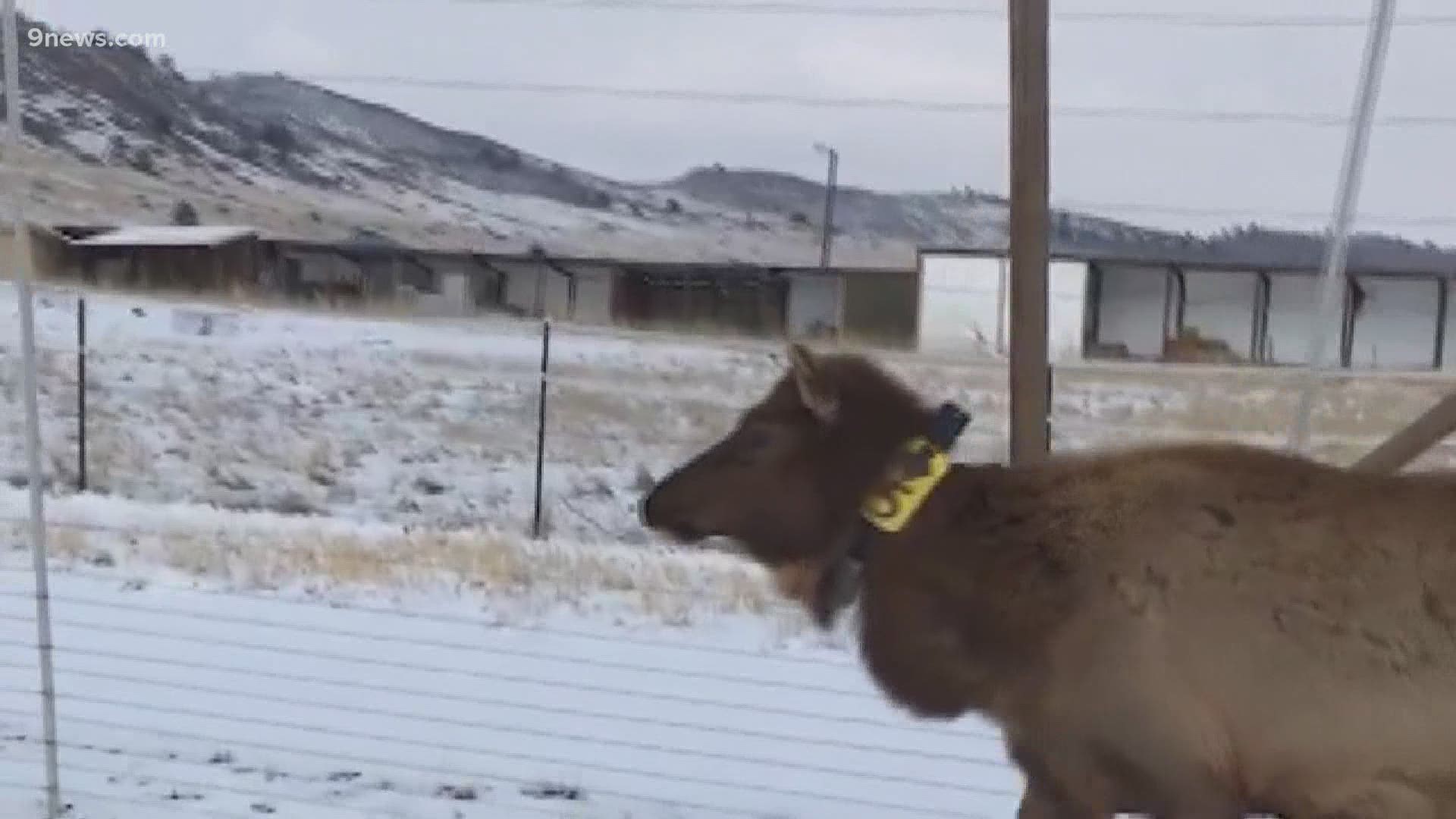FORT COLLINS, Colo. — Colorado Parks and Wildlife (CPW) said they don't believe the Cameron Peak fire had any short-term impacts on elk herds that live in or near the areas that burned this fall.
The wildfire burned 208,913 acres from August through December and is Colorado's largest-ever in recorded history.
CPW said wildlife biologist Angelique Curtis was able to survey the herds in Larimer County for the first time since the fire during a seven-hour helicopter flight on Jan. 7.
>> The video above is from November about how elk were fleeing the fire.
It's part of a larger study using GPS collars to look at elk population, movement patterns, habitat use, reproduction success and mortality causes, according to CPW.
“The purpose of these flights is to get a classification,” Curtis said. “Classification is the cow, calf and bulls that we see on the ground and that is entered into a model and then from there we use the model to produce population estimates and to decide how many licenses we need to give out each year.”
During the Jan. 7 flight, CPW said Curtis was able to classify about 4,200 elk.
“The elk that we saw today actually summered up where the Cameron Peak Fire burned in the Comanche Peak Wilderness, Long Draw area and up in Dead Man,” Curtis said on Jan. 7. “What we saw today is that the fire didn’t inhibit them from actually getting to their wintering ground and we saw some pretty good calf recruitment We did see healthy animals on the ground, so the fire didn’t seem to affect them health-wise.”
CPW said they still don't know if there are any potential long-term effects from the fire on the herds but that it is a good sign the elk were able to make it down to their wintering grounds.
“It is going to be interesting to see when they migrate back to their summer range, how that is going to affect their movement patterns and if they are going to go to the same locations as they did the previous year,” Curtis said.
The Cameron Peak Fire was first reported just before 2 p.m. on Aug. 13. The fire exploded in size over Labor Day weekend, burning more than 78,000 acres. In all, it charred 208,913 acres (about 326 square miles). The fire's cause is still under investigation.
SUGGESTED VIDEOS: Animals and Wildlife

